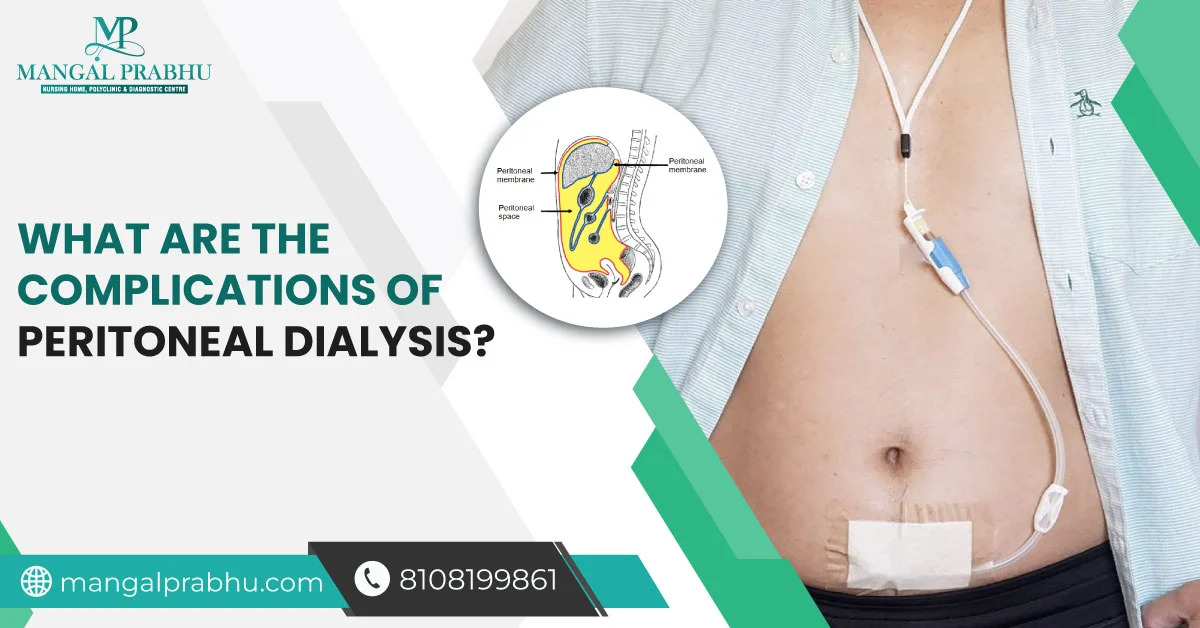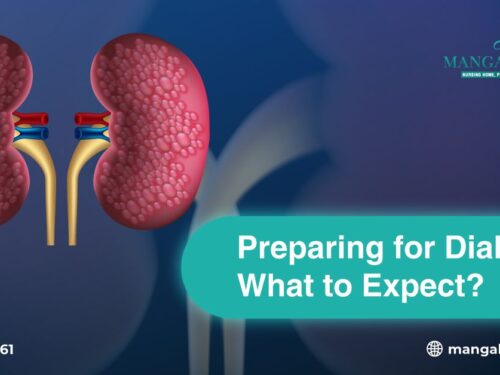
What is Peritoneal Dialysis?
Peritoneal dialysis is a home-based treatment conducted with a dialysis machine that is placed on the umbilical walls (termed as peritoneum). Then, a doctor at Dialysis Center in Navi Mumbai transfers fluid solution known as dialysate into the abdominal cavity through a catheter, within which there are blood vessels in the peritoneum and waste products & excess fluids go from the blood vessels pass into the dialysate.
However, To ensure that this program is successful, it is essential to consider every little detail of the topic to deal with complications and achieve general patients’ well-being in the peritoneal dialysis program.
Complications of Peritoneal Dialysis
Complications which are related to the peritoneum may arise due to the patient’s state of health if the adverse conditions endanger their life and the technique used for this technique. However, complications differ from infectious to non-infectious. Infection, inefficient dialysis, and Peritonitis are some of the common hurdles in routine life which may lead to kidney failures.
Common Complications of Peritoneal Dialysis
1. Infection
Infection is very much a risk factor for patients who are on peritoneal dialysis. The catheter entry site and the lower abdomen (peritoneal cavity) can be the sites of infection. Symptoms that may be redness, swelling, pain, and drainage around the catheter site, as well as general malaise and fever, are usually associated with a lot of infections. Immediate administration of antimicrobials is a critical first step in the management of the illness.
2. In adequacy
Incomplete dialysis occurs when the dialysis process does not sufficiently clean the body of bad substances and excess liquid. The result can lead to swelling, increases in blood pressure, and an imbalance in the electrolytes. Adjusting the dialysis regime or changing to a different type of dialysis can be helpful in eliminating inadequacy.
3. Peritonitis
Peritonitis, an orchestration of inflammation within the peritoneum, emerges as a dramatic crescendo in this symphony of challenges. Symptoms like abdominal pain and cloudy dialysate are some of its causes. Act promptly with antibiotics or get the best possible treatment from Mangal Prabhu Hospital to quickly eliminate the potential risk of this issue.
Preventing and Managing Complications of Peritoneal Dialysis
Complications occasionally take center stage in peritoneal dialysis, demanding attention and strategic intervention. Some of the preventing and managing tips offered by the best Multispecialty Hospital in Navi Mumbai are:
i) Proper Technique and Care
From the gentle touch of catheter care to the meticulous attention to dialysis exchanges, it becomes a brushstroke in the masterpiece of prevention. Patients become virtuosos of technique, mastering the artistry of prevention to keep complications at bay.
ii) Regular Monitoring and Follow-Up
Regular check-ins with healthcare unveil insights into dialysis adequacy and overall well-being. These appointments help to guide patients through the intricate nuances of their PD journey.
iii) Collaboration with Healthcare Team
Collaboration with healthcare transforms challenges into triumphs. Nurture open communication, share concerns, and let the healthcare team orchestrate the best care composition for you.
Conclusion
In the grand symphony of peritoneal dialysis, complications are just fleeting notes in a symphony of resilience. By arming with knowledge, honing techniques, and harmonizing with the best Mangal Prabhu Hospital healthcare allies, you can rewrite the narrative.

